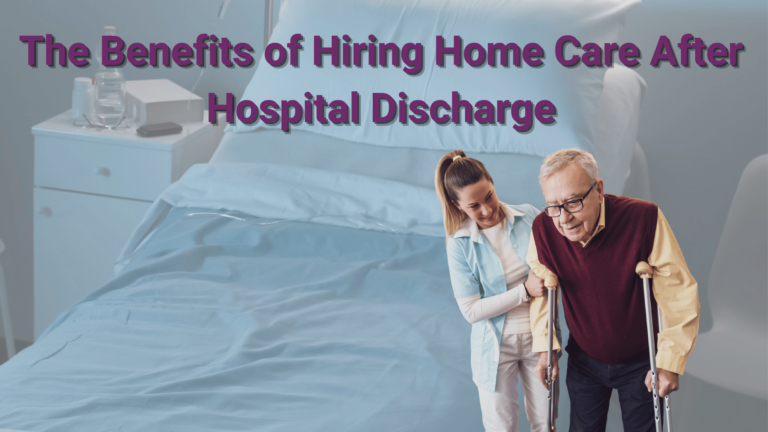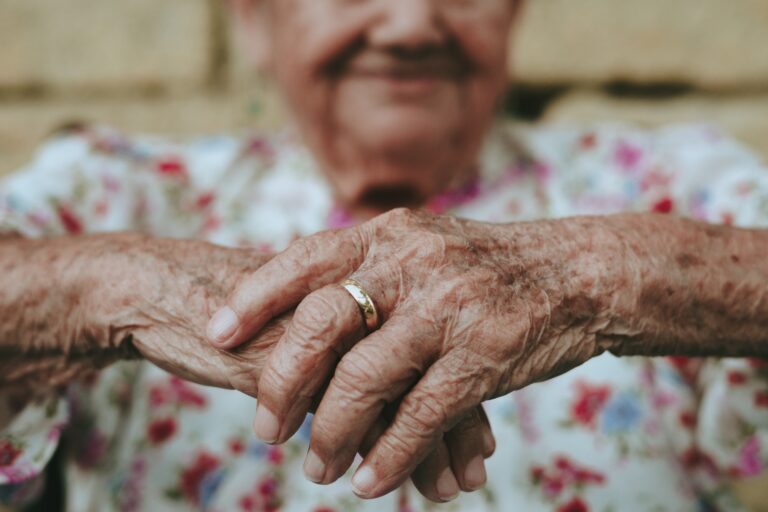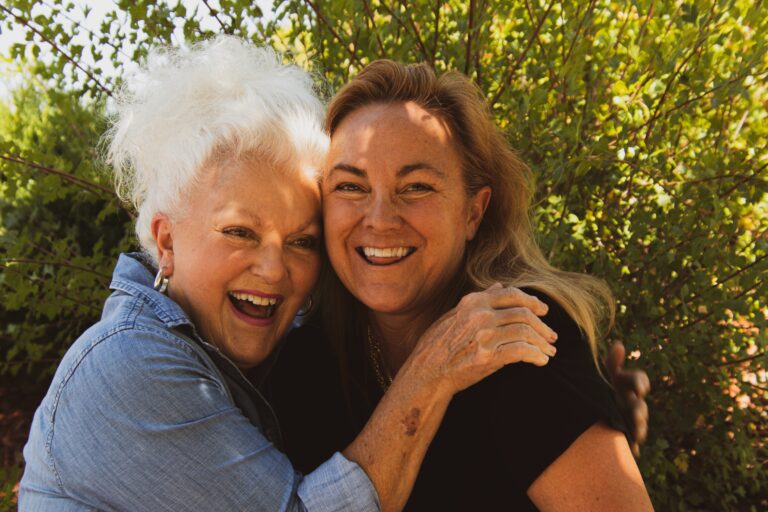You bring your loved one home from the hospital. The relief of leaving the clinical environment of a hospital or skilled nursing facility (SNFs) behind is quickly replaced with a wave of new responsibilities. Managing medications, helping them move around, managing their personal hygiene, and navigating new routines—suddenly, the situation feels overwhelming. That’s when having a discharge plan that includes hiring a professional home care agency becomes a game-changer.
Smooth Transition Home: Immediate Support from Day One
When Sarah’s mom, Ellen, came home after hip surgery, the challenges piled up fast. Getting around the house, managing medications, and simply adjusting to recovery at home was stressful. Home care stepped in at the perfect time. A care coordinator and caregiver assessed Ellen’s home, rearranged furniture to ensure safe mobility, and helped her get comfortable right away. Or like Mary, who has dementia and fell down a couple of weeks ago and broke her arm. Now her family is concerned she may not realize she has a cast. They were worried that when she tried to move around her memory care apartment, she won’t have the strength to get up and may fall again. So they call in some help for a few weeks until she is healed.
This support matters because the first few days after discharge are critical. Having a caregiver to assist with mobility, meals, and medication reminders creates a safer environment and reduces the risk of complications from day one.
Reducing Hospital Readmissions: The Key to Staying Home
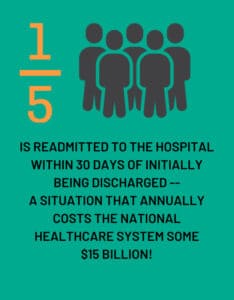 Nobody wants a return trip to the hospital after finally getting home. But nearly 20% of seniors are readmitted within 30 days of discharge. Often, it’s due to complications like missed medications, falls, or infections—issues that professional caregivers can help prevent.
Nobody wants a return trip to the hospital after finally getting home. But nearly 20% of seniors are readmitted within 30 days of discharge. Often, it’s due to complications like missed medications, falls, or infections—issues that professional caregivers can help prevent.
Home care agencies are skilled at keeping these setbacks at bay especially in higher risk patients. In Sarah’s case, her mom’s caregiver kept a close eye on Ellen’s recovery. She ensured medications were taken on time and that Ellen didn’t strain her healing hip. This kind of preventive care makes a major difference, helping patients avoid hospital readmissions and stay on the path to full recovery.
Supporting the Critical First Days: Help When Is Needed Most
The first week at home can feel overwhelming. Between new medications, strict recovery plans, and daily routines, things can spiral out of control quickly. This is where home care professionals are truly invaluable.
Trained to handle recovery-specific tasks, caregivers assist with things like helping patients in and out of bed, navigating stairs, and ensuring proper medication use. For Ellen, the caregiver followed the recovery plan precisely, allowing her to focus on healing without worrying about the details. And unlike home health services, which may only visit briefly, home care can be available for extended hours—even 24/7 if necessary.
Peace of Mind for Families
For Sarah, the biggest relief was knowing she didn’t have to handle everything on her own. Instead of constantly worrying about her mom’s well-being, she could spend quality time with Ellen and focus on supporting her emotionally, all while getting the rest she needed.
Home care provides exactly that—peace of mind. With a professional caregiver taking care of the daily tasks, families can focus on what really matters: being there for their loved ones.
How Professional Caregivers Enhance Recovery
Let’s face it—recovery doesn’t end when you walk out of the hospital doors. The road to full recovery can be long and challenging. Whether it’s regaining strength after surgery or managing chronic conditions, this is where professional caregivers from home care agencies step in to make life easier—and safer.
Comprehensive Support: More Than Just a Helping Hand
Home care professionals offer so much more than just a helping hand. They provide comprehensive support for patients during their recovery, handling essential tasks that might be difficult for individuals to manage on their own. Whether it’s assistance with activities of daily living (ADLs)—like bathing, dressing, or meal preparation—or more specialized care like monitoring vital signs and providing medication reminders, these caregivers help ease the burdens that often accompany post-hospital recovery.
What makes home care agencies stand out is their ability to personalize care plans to meet the unique needs of each patient. For example, someone recovering from knee surgery might need assistance with mobility exercises, while someone managing heart disease may require help following a strict medication and diet regimen. No matter the situation, professional caregivers are trained to tailor their services to ensure the highest level of care.
Filling in the Gaps in Care: What Happens When the Nurse Isn’t There?
One of the biggest misconceptions is that home health services—like visits from nurses or physical therapists—are enough to cover all recovery needs. The reality? These services are often limited to a few hours per week. What happens when no one is there during the other 23 hours? That’s where home care agencies come in.
Caregivers are there to support you during the times when professional medical staff can’t be. They help with everyday tasks like preparing meals, cleaning, and ensuring medications are taken correctly—all of which are vital to a successful recovery. More importantly, their constant presence means that small issues, like a slight fever or signs of infection, are noticed before they turn into big problems.
Preventing Small Issues from Becoming Big Ones
One of the hidden dangers of post-discharge recovery is that minor problems—like a missed medication or difficulty moving around—can quickly escalate into more severe health complications. Having professional caregivers on hand means someone is constantly monitoring these potential issues, ensuring they are addressed early.
For instance, a caregiver might notice that a wound isn’t healing as it should or that a patient is struggling to stay hydrated. They can report these observations to healthcare providers right away, preventing hospital readmissions and keeping the recovery process on track.
Holistic Care: Supporting the Body and the Mind
Recovering from an illness or injury isn’t just about physical health—it’s about mental and emotional well-being too. Professional caregivers offer companionship, which can be especially important for those who are feeling isolated or anxious after returning home. This emotional support can make a big difference, not only boosting the patient’s mood but also speeding up their physical recovery.
Having a caregiver around means patients have someone to talk to, someone to share their concerns with, and someone who genuinely cares about their well-being. This holistic approach to recovery—caring for both body and mind—ensures that patients have the emotional strength to face their recovery journey.
Addressing Common Challenges in Post-Discharge Care
When you’re recovering at home after being discharged from the hospital or rehabilitation center, it’s not just about feeling better—it’s about managing a range of tasks and potential risks that can easily complicate recovery. Professional caregivers from home care agencies are trained to tackle these challenges head-on, making recovery smoother and safer for everyone involved.
Managing Medication and Medical Equipment: The Silent Stressors
One of the biggest concerns post-discharge is managing medications and any medical equipment that’s required for recovery. From remembering when to take which pill to operating medical devices, this can be overwhelming, especially if there are multiple medications involved or complex equipment like oxygen machines or mobility aids.
Professional caregivers help take the guesswork out of this process. They assist with medication schedules, ensuring doses are taken on time and according to the doctor’s instructions. They also know how to handle medical equipment safely, reducing the risk of misuse or complications. This level of support not only keeps patients on track with their treatment plans but also prevents common errors, like mixing up medications or missing a dose, which can lead to serious health setbacks.
Caregivers also provide peace of mind for families, ensuring that someone is always there to monitor for side effects or new symptoms, and to alert healthcare professionals if something seems off.
Fall Prevention: Keeping the Home Safe
Did you know that falls are one of the leading causes of injury among seniors, especially after a hospital stay? In fact, falls often occur in the first few weeks after discharge, when patients may still feel weak or unsteady.
Home care agencies make fall prevention a top priority. Caregivers assess the home environment for hazards and work to create a safer space for recovery. This might include rearranging furniture to clear walkways, installing grab bars in the bathroom, or ensuring that floors are free of tripping hazards, like rugs or loose cords.
By focusing on home safety, caregivers significantly reduce the risk of falls, helping patients regain mobility and confidence without the fear of injury. They can also assist with exercises or physical therapy to improve strength and balance, further decreasing the likelihood of a fall.
Navigating New Routines: From Diet to Daily Activities
The first days at home after a hospital stay often come with a complete shift in daily routines. There may be new dietary restrictions, a need for more frequent rest, or limitations on physical activity. These changes can be confusing and stressful for both the patient and their family.
Professional caregivers excel at helping patients adapt to these new routines. They provide assistance with meal preparation, ensuring that dietary requirements are followed—whether it’s a low-sodium diet for heart health or a protein-rich diet for post-surgery recovery . Caregivers also help with personal care, like bathing and dressing, allowing patients to maintain their dignity and comfort while adjusting to their new physical limitations.
By handling these day-to-day tasks, caregivers allow patients to focus on what matters most: healing. They also offer families much-needed relief, knowing their loved one is receiving the proper care and attention.
Preventing Isolation and Emotional Decline
Recovery is not just about physical health—it’s about emotional well-being, too. After leaving the hospital, it’s common for patients to feel isolated, especially if they live alone or have limited social support. Loneliness and depression can slow the healing process and even lead to further health complications.
Home care agencies address this issue by offering companionship as part of their services. Caregivers not only assist with physical tasks but also provide emotional support, engaging patients in conversation, encouraging light activities, and keeping spirits high. This human connection can make a world of difference, helping patients stay motivated and positive throughout their recovery.
Personalized, Proactive and Holistic Care
Imagine recovering from a major surgery or illness, and everything is tailored to fit your needs perfectly. That’s the advantage of personalized care from home care agencies. They go beyond a one-size-fits-all approach, providing holistic, individualized support that addresses not only the physical aspects of recovery but also the emotional and social well-being of patients.
Tailored Care Plans: One Size Does Not Fit All
Every patient’s recovery journey is different. A patient recovering from hip surgery may have completely different needs compared to someone managing chronic heart disease or stroke. Home care agencies specialize in creating tailored care plans based on each patient’s unique situation, ensuring they get the support that works best for them.
Before care begins, home care agencies work with the patient, their family, and healthcare professionals to develop a comprehensive plan. This plan considers the patient’s specific medical needs, their mobility levels, and even their emotional state. For example, a patient with limited mobility might require assistance with exercises to regain strength, while another might need help managing a complex medication schedule.
Having a personalized care plan means that nothing is overlooked. It ensures that each aspect of a patient’s recovery is managed properly, leading to better health outcomes and a more comfortable recovery.
Holistic Care: Body, Mind, and Spirit
Recovery isn’t just about getting physically better. It’s about caring for the whole person, including their mental, emotional, and even spiritual needs. Home care professionals understand this and provide holistic care that goes beyond the basics.
Take emotional well-being, for instance. After discharge, many patients face feelings of anxiety, depression, or loneliness—especially if they’re recovering from a major health event or live alone. Home care caregivers offer companionship and emotional support, helping to alleviate these feelings of isolation. Whether it’s chatting over a cup of tea, encouraging light activities, or simply being a comforting presence, caregivers help patients stay positive during their recovery.
Spiritual care can also play an important role for some patients. Many home care agencies offer support that aligns with a patient’s personal beliefs and values, helping them find peace and comfort throughout the recovery process. This holistic approach ensures that every part of the patient—body, mind, and spirit—is cared for.
Emotional Support and Companionship: The Overlooked Aspect of Recovery
While much of post-discharge care focuses on physical health, the emotional aspects of recovery are just as important. Studies have shown that emotional well-being plays a significant role in how quickly patients recover. Patients who feel supported emotionally often experience faster healing and a better overall recovery experience.
Home care professionals are not just there to help with physical tasks—they provide companionship that can make a world of difference. They encourage patients to talk about their feelings, fears, and hopes for the future, offering a listening ear when it’s needed most . This kind of emotional connection helps patients feel less alone, and it gives families peace of mind knowing their loved one has someone to lean on when they can’t be there.
Social Interaction and Well-Being
For seniors recovering from surgery or illness, staying socially active can be difficult, especially if they’re unable to leave the house. Without regular social interaction, it’s easy for feelings of isolation and depression to set in, which can slow down recovery.
Professional caregivers are there to fill this gap. They keep patients engaged with meaningful activities, such as going for short walks, playing games, or even just having daily conversations. This social interaction not only improves the patient’s emotional well-being but also motivates them to stay active and positive during recovery.
Professional Monitoring and Reporting
Recovery is a journey, and like any journey, it can be full of unexpected twists and turns. One of the key advantages of hiring a home care agency is having a trained professional keeping an eye on things—ensuring that potential issues are spotted early and dealt with quickly. With professional monitoring and consistent reporting, caregivers act as the vital link between patients and their healthcare team, improving recovery outcomes and helping families stay informed every step of the way.
Early Detection of Complications: Catching Problems Before They Escalate
Imagine this: a slight fever after surgery, a change in appetite, or difficulty moving around the house. These might seem like small concerns, but they can be red flags for more serious complications. Professional caregivers are trained to notice the subtle signs of trouble before they become full-blown emergencies.
For example, caregivers can quickly identify if a wound isn’t healing properly, if a patient is becoming dehydrated, or if there’s a sudden change in mobility. By catching these issues early, they prevent complications that could lead to hospital readmissions or delays in recovery . This kind of proactive care is essential for ensuring a smooth and safe recovery at home.
Having a professional caregiver also reduces the burden on family members, who might not know what signs to look for or what to do if something goes wrong. Caregivers are there to act fast, providing peace of mind that nothing will go unnoticed.
Daily Monitoring and Detailed Reporting: Keeping the Healthcare Team in the Loop
While family members might visit daily or check in on their loved one, it’s the consistent monitoring by home care professionals that makes the difference. Caregivers provide daily reports on the patient’s condition, documenting everything from vital signs and medication adherence to changes in mood or appetite.
These detailed reports are shared with the healthcare team, which allows doctors, nurses, and therapists to stay updated on the patient’s progress. If adjustments to the care plan are needed—such as changes to medications or additional therapy—the caregiver can coordinate these changes quickly with the medical professionals . This constant communication ensures that patients receive the most up-to-date care based on their current needs.
In some cases, caregivers may even attend follow-up appointments, ensuring that all concerns are communicated directly to the doctor and that any new instructions are followed to the letter. This level of care coordination plays a huge role in preventing setbacks and keeping recovery on track.
Keeping Families in the Loop: Peace of Mind for Loved Ones
For families, the biggest worry is often not knowing what’s happening day-to-day. How is their loved one really doing? Are they eating enough? Are they in pain? Hiring a home care agency offers families peace of mind because they’re always kept in the loop.
Caregivers can provide families with regular updates, either through daily check-ins, phone calls, or even digital reports. This open line of communication reassures families that their loved one is in good hands and progressing well. It also means that if any concerns do arise, families are notified immediately and can be part of the decision-making process.
Improving Outcomes with Continuous Care
There’s a reason why patients with continuous care tend to have better outcomes. The presence of a professional caregiver means that there’s always someone looking out for the patient, ready to take action if something isn’t right. Whether it’s spotting signs of infection, ensuring medications are taken correctly, or simply making sure the patient is comfortable, this round-the-clock support makes a world of difference.
And it’s not just about preventing problems—it’s about encouraging progress. Caregivers keep patients motivated to stick to their recovery plan, whether that involves physical therapy exercises, maintaining a nutritious diet, or simply staying active. This consistent encouragement helps patients recover faster and feel better in both body and mind.
Peace of Mind for Families
There’s nothing more comforting than knowing your loved one is in good hands—especially when they’re recovering from an illness, surgery, or hospital stay. But the responsibility of providing that care can feel overwhelming for families, especially when you’re balancing work, personal life, and caregiving duties. That’s why hiring a home care agency is not just about helping the patient—it’s about providing peace of mind for families, too.
Alleviating Caregiver Burden: You Don’t Have to Do It Alone
Let’s be honest—caring for a loved one after they’ve been discharged from the hospital can be a heavy burden. From managing medications to helping with mobility, there’s so much to keep track of. It’s easy for family caregivers to feel stressed, exhausted, and even burned out. But here’s the thing: you don’t have to do it alone.
Hiring a professional caregiver from a home care agency can relieve this pressure, allowing families to focus on spending quality time with their loved ones rather than constantly worrying about their care. Caregivers can assist with activities of daily living (ADLs), medication reminders, meal preparation, and more, taking over tasks that would otherwise fall on the family.
This not only ensures that the patient receives expert care, but it also means that family members can get the rest and relief they need. They don’t have to feel guilty about taking a break or stepping away, knowing that their loved one is being well looked after. As a result, both the patient and their family members are healthier, happier, and less stressed.
24/7 Availability: Help Is Always There When You Need It
Emergencies don’t wait for business hours, and neither do the needs of someone recovering from surgery or illness. One of the major advantages of home care agencies is their flexibility and availability. Whether you need a caregiver for a few hours a day or 24/7 care, agencies can provide a customized schedule that works for your family’s needs.
This around-the-clock care ensures that no matter what time of day or night it is, your loved one always has someone there to help. It’s especially comforting for families who can’t be present all the time due to work or other responsibilities. Knowing that a professional caregiver is available at all hours brings peace of mind that your loved one will never be left alone in a moment of need.
Emergency Preparedness: Ready for Anything
One of the scariest thoughts for families is the “what if?” What if my loved one falls? What if they forget to take their medication? What if their condition worsens, and I’m not there to help? These are valid concerns, but with a professional caregiver on hand, you don’t have to worry about the unknowns.
Caregivers are trained to handle emergencies. Whether it’s recognizing early signs of complications or knowing when to call for medical assistance, they can act quickly to ensure the best possible outcome for the patient. They’re equipped with the knowledge and skills to manage everything from minor issues to serious situations, which reduces the risk of preventable emergencies and keeps recovery on track.
For families, this means less stress and fewer sleepless nights worrying about what could go wrong. Having someone who knows exactly what to do in an emergency provides invaluable peace of mind.
Emotional Support for Families: Not Just for Patients
The emotional toll of caring for a loved one can sometimes go unnoticed. It’s not just the patient who’s affected—families often carry emotional stress, too. Watching someone you care about go through a difficult recovery can be draining. Home care agencies offer support not just for the patient, but for the entire family.
Caregivers provide a comforting presence, offering families the reassurance they need. They listen to concerns, help answer questions, and ensure that everyone involved in the patient’s care is on the same page. This level of communication keeps families informed and reduces feelings of helplessness.
Plus, caregivers can offer practical advice on how families can best support their loved one during recovery. Whether it’s tips on managing stress, advice on making the home safer, or simply encouraging family members to take care of themselves, caregivers provide the emotional and practical support needed to navigate the challenges of caregiving.
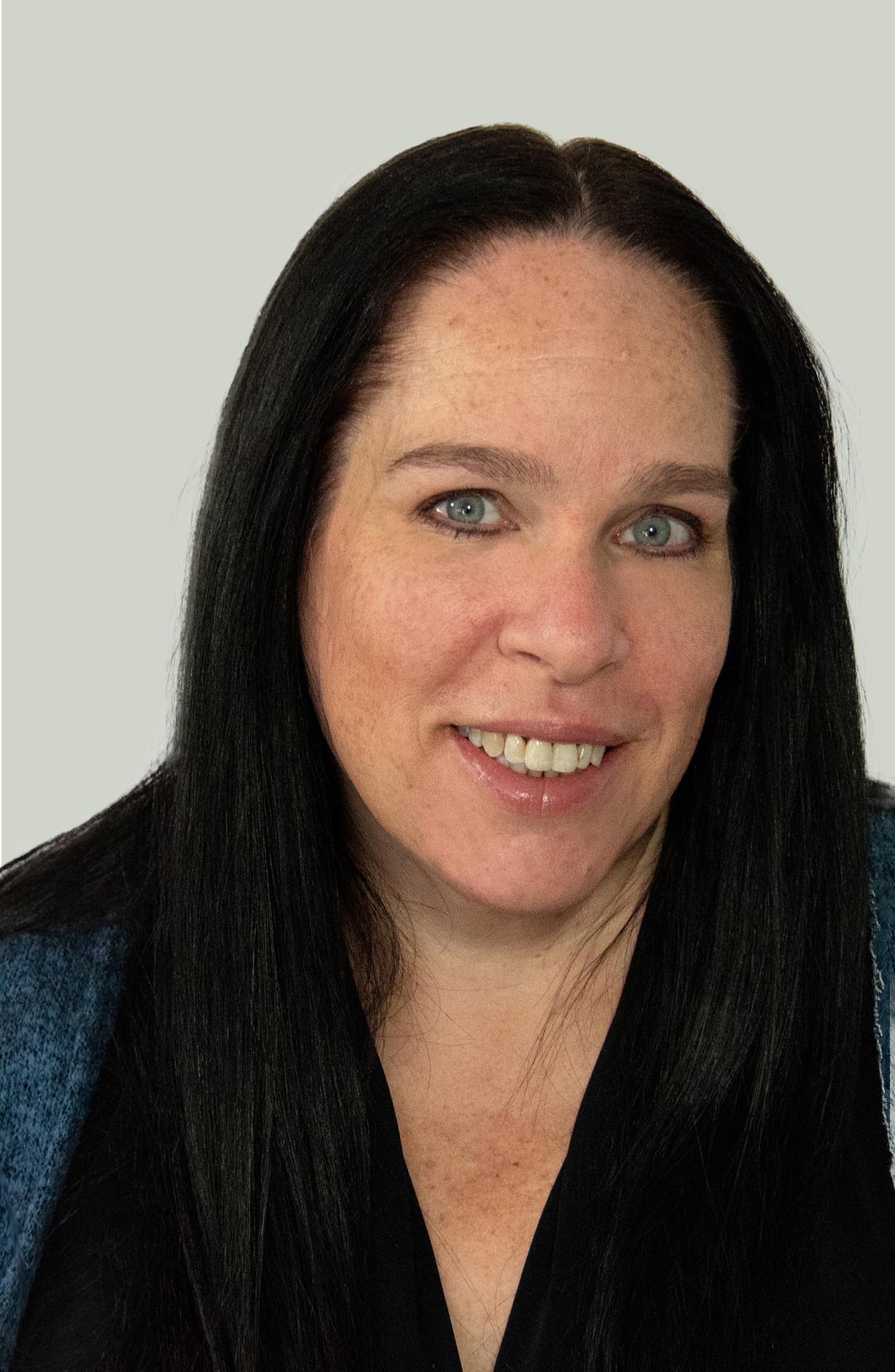
From a young age, Stacey’s link to the senior care industry grew alongside her mother’s work at a nursing home, where she often accompanied her. By her early teens, she secured her first official job at a nursing home, laying the foundation for a profound journey in senior care spanning over four decades. Her roles varied from opening assisted living and memory care residences to working in nursing homes and independent senior living communities. As the former Director of Fun for 300 independent seniors, she expertly organized daily events and trips. Stacey’s unwavering passion, nurtured by her family, and professional dedication as a recreation therapist, reflect her deep commitment to preserving the dignity and well-being of seniors.
Stacey’s senior care expertise has been recognized by the media including U.S. News and World Report and Care.com.
Stacey and her husband Bryan are the owners of the senior in-home care agency A Place At Home – North Austin.

